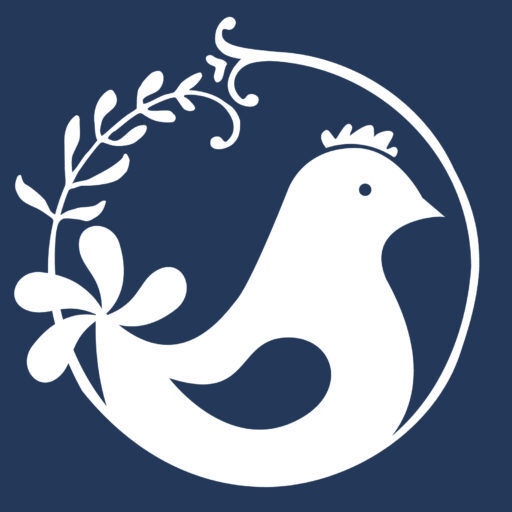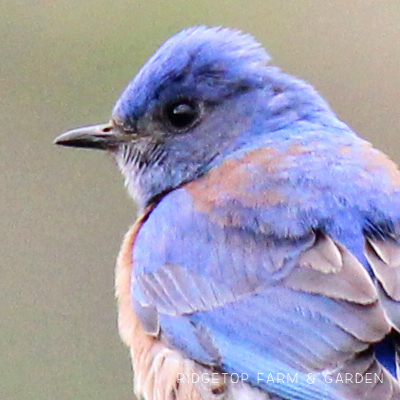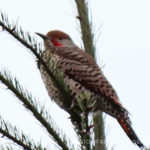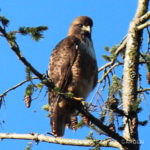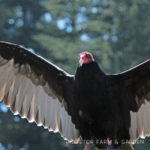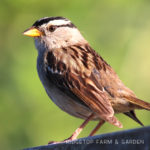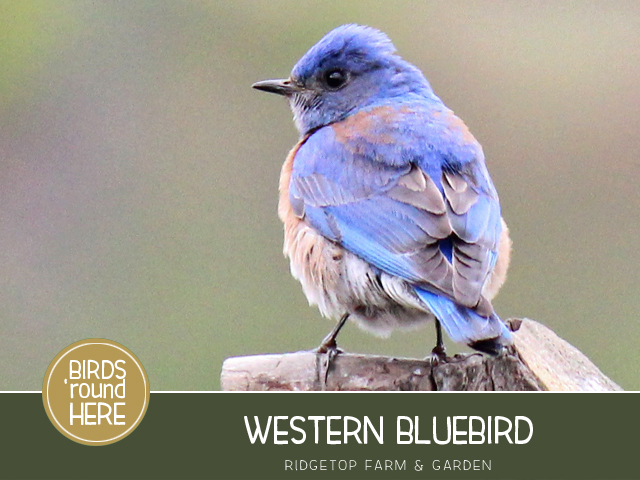
The Western Bluebird is always a welcome visitor. It means spring has arrived. The males are a beautiful bold blue, adding to the lovely colors of spring.
IDENTIFICATION
HEAD: male: blue, female: blue-gray
THROAT: male: blue, female: blue-gray
BREAST: rusty red/orange
BELLY: gray
WINGS: male: blue, female: blue-gray
TAIL: short
BILL: dark & small
FEMALE
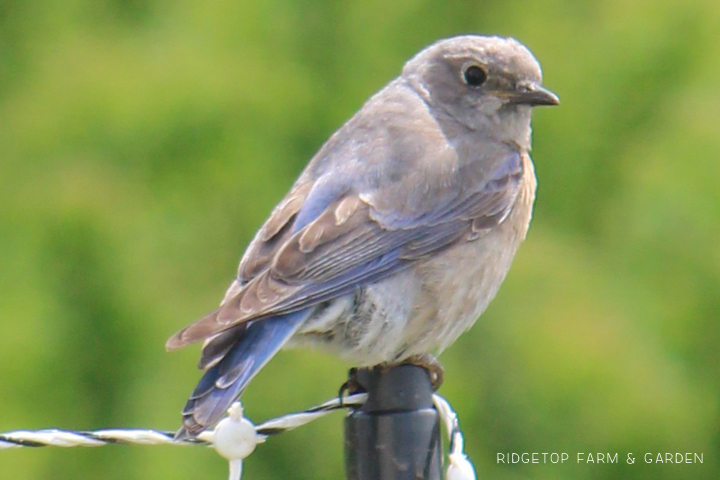
MALE
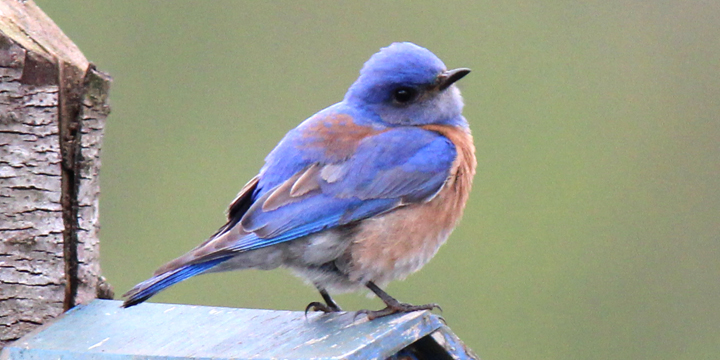
Notice the blue head & throat, rusty orange breast, and gray belly:
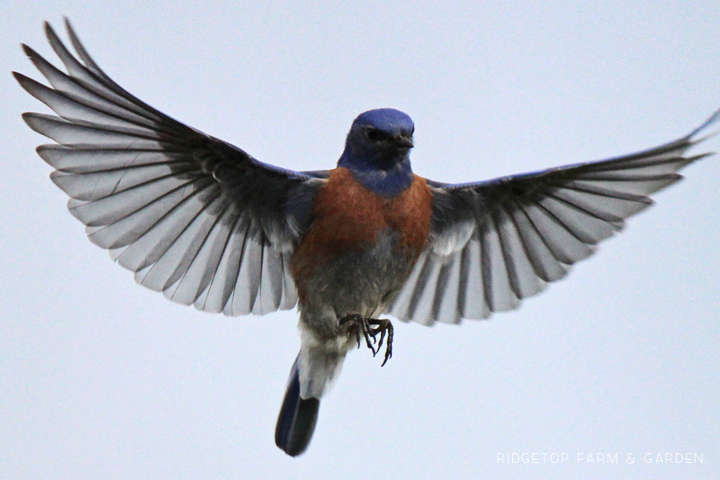
HABITAT
We are at about 1200′ elevation in the foothills of the coast range. The Western Bluebirds visit us each spring, stick around for a couple months, and are gone by mid summer.
They hang out mostly near the bird houses in our bird village. They also explore the shrubs and a tree snag nearby.
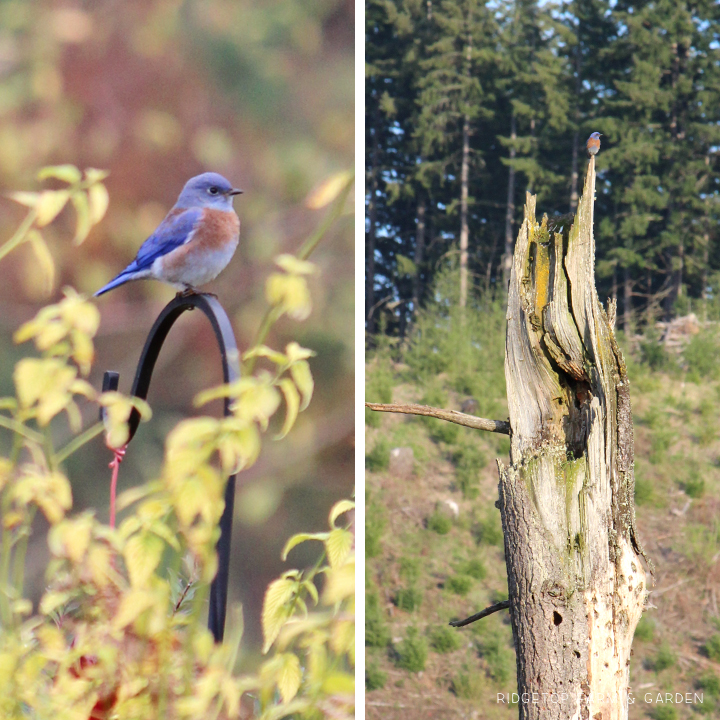
FEEDING
Most often I spot the Western Bluebirds flying around catching insects.
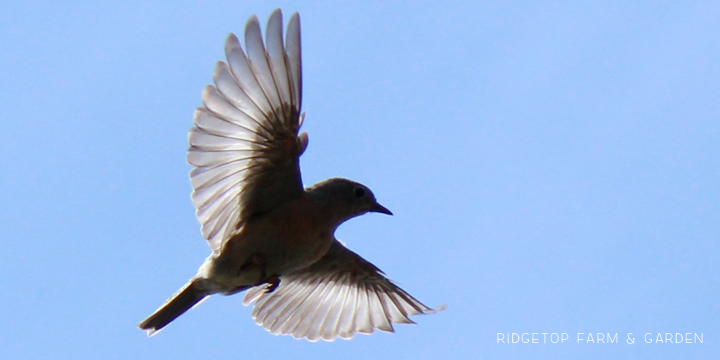
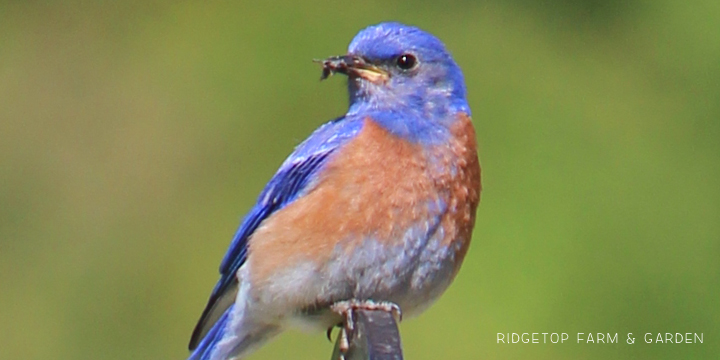
Occasionally, though, I notice them finding goodies near the ground.
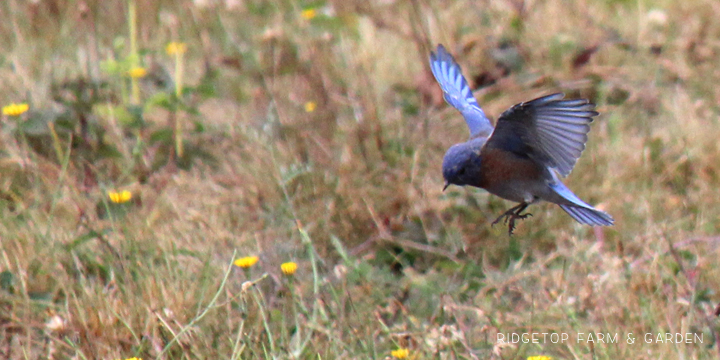
FRIENDS & FAMILY
FAMILY: Thrushes
SCIENTIFIC NAME: Sialia mexicana
Although they are a social bird, we typically only have one pair around our house.
Occasionally, I see a larger flock, though.
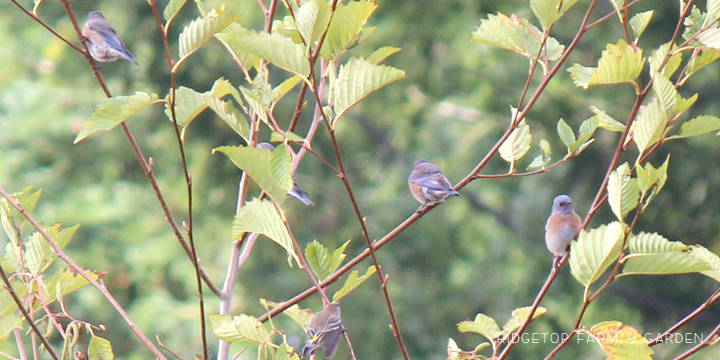
Every year there is a turf war with the violet-green swallows. The bluebirds seem to fight off the swallows, but the swallows always return. I see them in the bird houses. So, I’m not really sure who the real winner is.
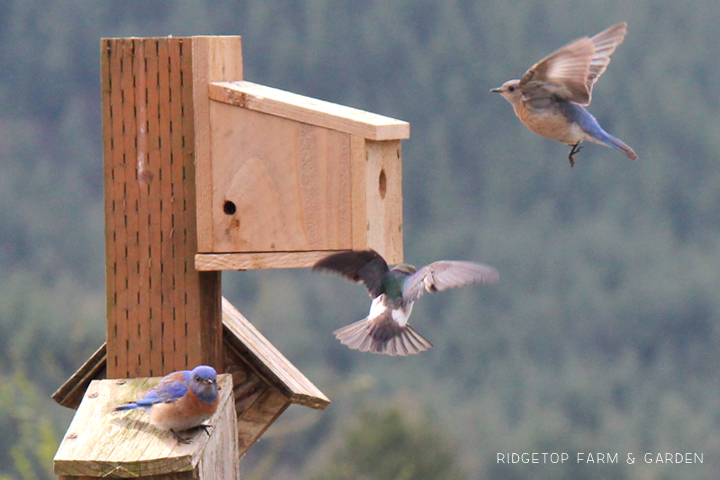
NESTING
I can’t see into the bird houses. But, both male and female appear to tend to their brood.
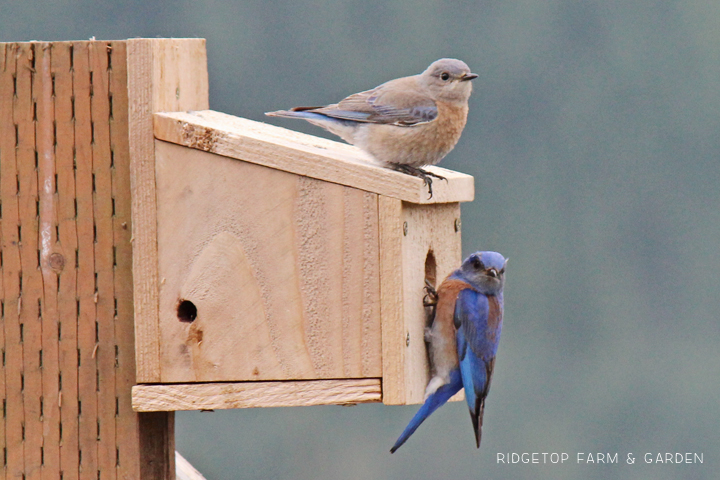
PHOTO GALLERY
Birdie bath time in our pond.
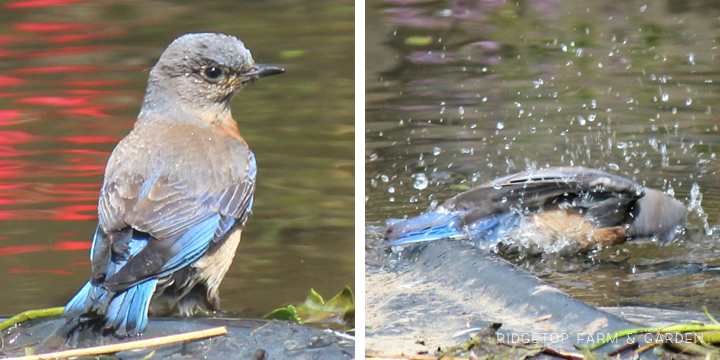
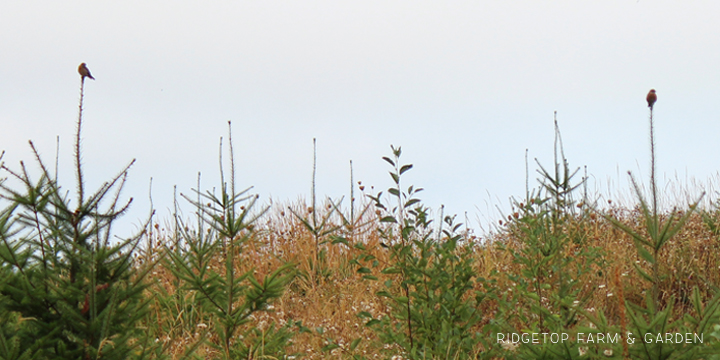
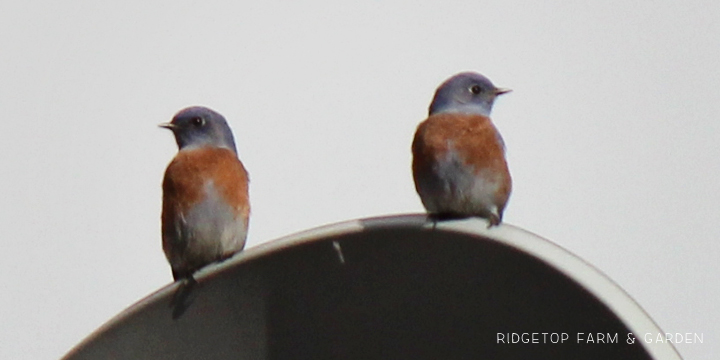
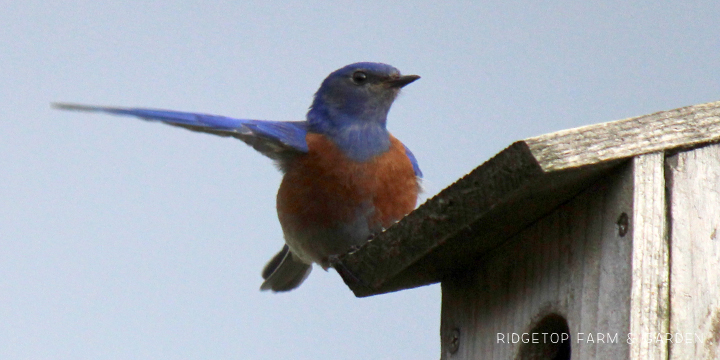
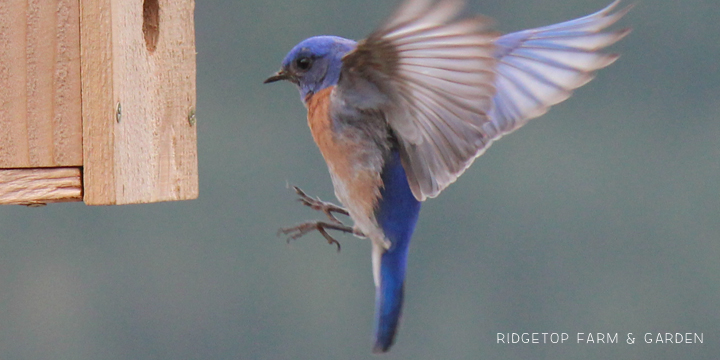
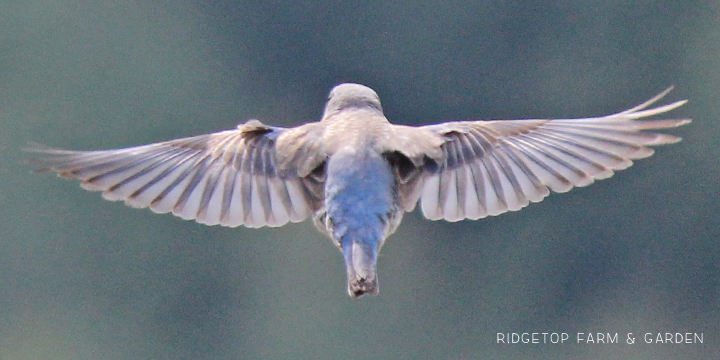
A number of years ago I spotted this male bluebird with bands on his legs. I sent an email to the USGS Bird Banding Laboratory describing the band colors. I received a message back telling me where the bird originated.
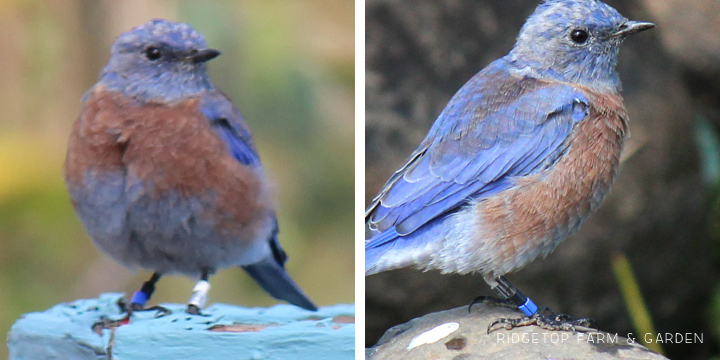
HAPPY BIRDING!
